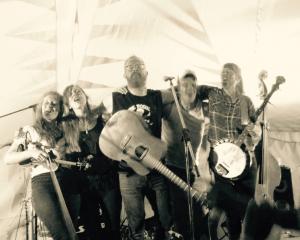
After more than three decades in the New Zealand Police, Superintendent Paul Basham’s passion for the job is as strong as ever.
The veteran took up the role as Southern district’s top cop last week and, while not as wide-eyed as he was as an 18-year-old recruit, he still believes policing is about the difference officers make to people’s lives.
"I think if you asked a room full of police officers why they joined police, they’d say to make a difference and broadly speaking that’s true of me too," he told the Otago Daily Times earlier this week.
"I deeply believe we do and ... the fact we are still able to make a difference is really rewarding."
Born and raised in South Auckland, he only ever entertained policing as a career.
"I have only ever wanted to be a policeman from a young age," he said.
"It’s the only thing I have ever wanted to do. I was lucky enough to join at 18 and lucky through all my career. I have had amazing colleagues and fabulous bosses and I’m probably as enthusiastic about this job and this agency at 50 ... as I was at 18."
After graduating from the Royal New Zealand Police College in 1985, he returned home for his first role on the frontline in South Auckland.
"I learnt my trade there, as well as qualifying as a detective,’’ he said.‘‘I spent a lot of time in the investigation side of the business, which has been a big feature in my career."
While he recognised South Auckland in the late ’80s and early ’90s was a "really violent place both for the community and the police", his eyes were opened when he was seconded to the United Nations International Criminal Tribunal for the former Yugoslavia in 1998.
Working from The Hague, in the Netherlands, his focus was the Bosnian genocide.
"The work was significant and ultimately quite rewarding and a bit of a life-changing experience," he said.
"The war crimes tribunal was death and all those horrible things [seen in policing] on a greater scale and there was a political aspect to it because we were trying to hold political and military leaders accountable.
"As I matured and thought more about home I realised we live in a paradise where we tend to resolve our disputes through process. We have courts, we have got a Treaty settlement process, whereas those kind of issues in the other parts of the world are solved at the end of a barrel."
His wife, Colleen, followed him to the Netherlands and worked managing the exhumation project for the war crimes tribunal, pulling together the forensic specialists who come in every summer to exhume mass graves in Bosnia and other parts of the former Yugoslavia.
His daughter, Georgia, was also born while the couple were in the Netherlands and in 2003 the young family returned to New Zealand with a greater appreciation for home.
He returned to being a detective, first in South Auckland, then Tauranga, before moving to Wellington to complete his master’s degree.
"If you look around the world the rule of law is quite fragile in some parts of the world," he said.
"Things we take for granted here — like transparency of government, lack of corruption, a stable judiciary — there are parts of the world where those things are not certain, large parts of the world.
"To work for an organisation that contributes to that stable environment ... I’m proud to be part of the New Zealand Police, very proud," Supt Basham said.
While working as the head of Wellington’s CIB, he got his first taste for area leadership.He spent the past four years as Porirua area commander and occasionally relieving as Wellington district commander.
Supt Basham’s move south marks the first time he or his family have lived or worked in the South Island.
"I think having just arrived here in Southern district, it’s been noticeable how friendly people are," he said.
"I started in Invercargill last week and people are kind of just genuine, in that they want to take the time to just say hello and have a conversation.
"I don’t think they are less busy than anywhere else in the country, but people seem to be willing to stop and take the time.
"We are quite excited about moving and living and working in the South Island and all that that offers."
From a policing view point, the district enjoyed trust and confidence from the public and was well-placed to continue that trend despite challenges such as the geography of the area, he said.
"If you look at Southern district, our northern boundary is Oamaru and then you cut across to Omarama and then it’s everything south of there — it’s a big hunk of dirt," Supt Basham said.
"I think it’s around 24% of the land mass in New Zealand ... We effectively have responsibility to police all of that.
"I think that’s a challenge but it’s a challenge that’s inherent to rural or provincial policing in New Zealand."
With his son, Jack, starting high school in Dunedin next year, his family intended to spend at least the next three years in the district, Supt Basham said.
Supt Paul Basham
Age: 50
Born: South Auckland
Marital status: Married with two children
Joined police: 1985
Qualifications: Master’s degree in strategic studies (Victoria University of Wellington)
Past policing career: Frontline and CIB duties with Counties Manukau district, Tauranga CIB, Wellington CIB, Porirua area commander.
Other career highlights: Five-year secondment to the United Nations International Criminal Tribunal for the former Yugoslavia in The Hague investigating war crimes in Bosnia.












